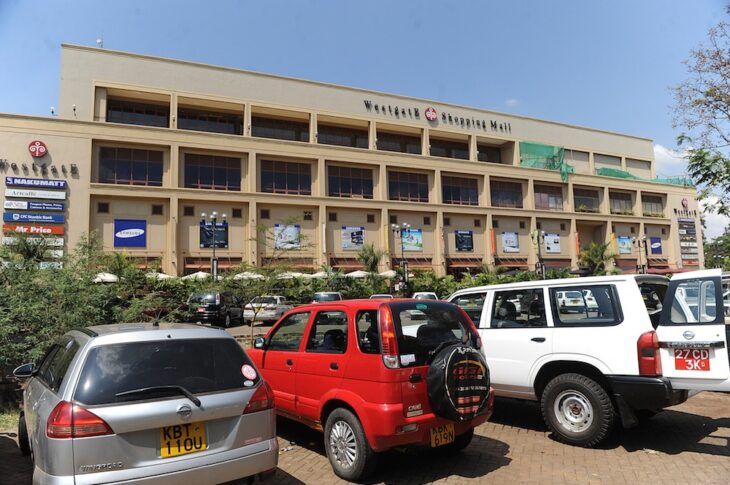NAIROBI, Kenya, Sept 29 – Last week, Kenyans marked eight years following the debilitating terrorist attack on Westgate, an upmarket shopping complex in Nairobi’s Westlands area. On that fateful Saturday in September 2013, four young men brandishing automatic rifles and grenades stormed into the building mowing down whoever came into sight while destroying property in the grenade-induced blasts.
At the end of the siege that lasted four days and claimed by Al-Shabaab, 68 Kenyans had been killed and the once exuberant shopping complex lay in ruins, ominous smoke billowing from one of the wings.
The attack would come to symbolize one of the darkest moments in Kenya’s history. Besides exposing the country’s vulnerability to the global scourge of terrorism; it also indicated the level of depravity of the security forces.
Safes were opened, liquor stores emptied even as police shot at each other. In the end, it was the civilians who valiantly held off the attackers, that were celebrated – and not the security response team.
In a streak of reckoning, the state moved in to cure the ills, tightening the loopholes in Kenya’s counterterrorism agenda. The National Counter-Terrorism Centre (NCTC) was created to professionalize and coordinate different government agencies to counter extremism.
Meanwhile the threat of terrorism became increasingly evident with grenades inside churches and public transport vehicles. Apprehension reigned supreme as terror alerts became the order of the day. Tourism was hugely affected with security becoming the only sector to register growth as private security firms mushroomed across Kenya’s metropolises.
Kenyans’ destiny with fate under the murderous arm of Al-Shabaab would manifest again in April 2015 when a gang of coldblooded assassins charged into Garissa University killing 147 people, mostly students. This most chilling episode of terrorist attacks in the country raised many questions about the country’s preparedness to cushion the population from the vice.
Unbowed by the vagaries of violent extremism, Kenyans surged forward, as they sought answers from the state. Both Westgate Shopping Mall and the Garissa University have since resumed operations, signaling the resilient and indomitable spirit of the citizens.
After 2015, it appears the government had learnt the ropes. Through a series of targeted training of specialized security units; closer working relationship with communities, broader coordination of various government agencies and robust international cooperation, the threat of terrorism and violent extremism have subsided.
A strong legal framework has made it possible to bring terrorism perpetrators and sympathizers to justice. Mohamed Ahmed Abdi and Hussein Hassan Mustafa were in October 2020, sentenced to 18 years each for providing support to the Westgate attackers; with Abdi handed another 15-year jail sentence for possessing terrorism related materials. In June 2019, three people were convicted and jailed for their role in the Garissa University massacre.
The kind of runaway terrorism-related insecurity witnessed in the country in the first half of the last decade has substantially reduced. Due to strong partnership bringing together communities, civil society and government agencies fewer young people are drawn to terrorism.
Over 300 young people from the Coast region, who had been lured into Somalia by the Al-Shabaab, in June 2021, abandoned their training and returned home. This has reduced the number of impressionable minds that terrorist groups could prey on to effect their nefarious acts.
While Kenyans can reasonably go about their daily businesses with relative ease today, the threat of terrorism remains alive. In 2019 terrorists attacked the DusitD2 Complex in Nairobi, killing 21 people. Other sporadic attacks have been reported mostly in northern part of the country.
Kenya’s war on terrorism has therefore achieved mixed results. The security forces are accused of rampant and arbitrary arrest and disappearances in the name of terrorism. Human rights groups especially at the Kenyan coast have documented multiple cases of people picked up by police only to be found dead later in unclear circumstances.
Excessive use of force is antithetical to the desirable outcomes in the fight against terrorism. A multipronged approach that leverages both hard power and development programmes is responsive and can yield more sustainable results. The kind of bravado and public drama that have defined recent arrests of terrorism suspects only sends a signal to potential recruits that terrorists are invincible.
In an era where more terrorist groups are emerging around the world, Kenya must continue to prioritize international cooperation with priority on forward detection and deterrence of the vice.
Technology offers terrorist exclusive spaces to recruit, plan and execute their activities. Such online platforms should be properly monitored coupled with on ground intelligence to nub suspects as the country continues with its long war on terrorism.
Want to send us a story? Contact Shahidi News Tel: +254115512797 (Mobile & WhatsApp)


